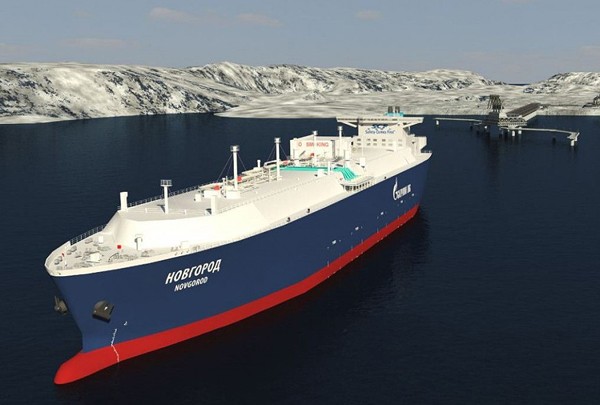Major Cocaine Bust: UK Border Force Seizes Record Shipment at London Gateway
In one of the UK’s largest drug seizures of the past decade, UK Border Force officers have seized cocaine with an estimated street value of £96 million (USD 130 million)...


New LNG projects, including from Gazprom and other Russian producers, will lead to the cancellation of some higher-cost schemes in the U.S. and Australia, Deputy Chief Executive Officer Alexander Medvedev said Sept. 24 at the Adam Smith Sakhalin Oil and Gas Conference. Gazprom is gearing up to more than double LNG output by the end of the decade as the government prepares to strip it of its export monopoly.
“We can close contracts with high prices now before the wave of new LNG volumes in 2015 and 2016,” Medvedev said. “As we say in Sakhalin, it’s better to be by a fire in the summer than in the winter sun.”
Russian President Vladimir Putin in June called for a liberalization of export laws to encourage LNG production and take advantage of a “window of opportunity” in the Asia- Pacific market. The International Energy Agency forecasts global LNG supplies will grow by nearly a third by 2018 from last year’s level as Australia and the U.S. increase exports.
Gazprom may face competition for the export of gas from Russia for the first time at the end of the year as state-owned companies and some fields are given the go-ahead to ship LNG abroad. OAO Rosneft and OAO Novatek are developing projects after Gazprom failed to expand LNG production since opening the nation’s only liquefied gas facility on Sakhalin Island in 2009.
Global Capacity
About 138 billion cubic meters a year of LNG production was under construction as of mid-2013, bringing global capacity to at least 500 billion cubic meters by 2018, the IEA said in its Medium-Term Gas Report in June. Of the new supply, almost 86 billion cubic meters will be sold to Asia and more than 80 percent has been contracted on a long-term basis, according to the report.
Gazprom, which provides about a quarter of Europe’s gas, is planning to add a third 5 million-metric-ton LNG train at Sakhalin and at least 10 million tons of production at its Vladivostok facility by 2020.
Russia aims to produce over 11 percent of the world’s LNG by 2020 from about 5 percent currently, Deputy Energy Minister Kirill Molodtsov said at the conference. The country is targeting a 20 percent global market share by 2030, pushing back the goal from 2020, according to the presentation.
Shale Competition
Gazprom exports have suffered as U.S. mastery of hydraulic fracturing to release natural gas from shale rock made it the largest producer of the fuel. While projects to export LNG from the U.S. remain under construction, a glut of gas has led to rising coal exports to Europe where it has supplanted gas in power generation.
The changing gas market scuttled Gazprom’s development plans for the Shtokman field in the Barents Sea, was to include an LNG component, after an agreement with Total SA and Statoil ASA lapsed last year.
Gazprom efforts to increase gas supplies to Asia have also faltered, with negotiations to build a pipeline to China dragging on since at least 2004 as the parties struggle to agree on prices. Gazprom says it plans to sign the deal by the end of the year.
Demand in China will grow by 12 percent a year over the next five years as it absorbs one-third of new LNG supplies worldwide over that period, according to the IEA.
– Jake Rudnitsky, Copyright 2013 Bloomberg.

Sign up for gCaptain’s newsletter and never miss an update

Subscribe to gCaptain Daily and stay informed with the latest global maritime and offshore news


Stay informed with the latest maritime and offshore news, delivered daily straight to your inbox
Essential news coupled with the finest maritime content sourced from across the globe.
Sign Up